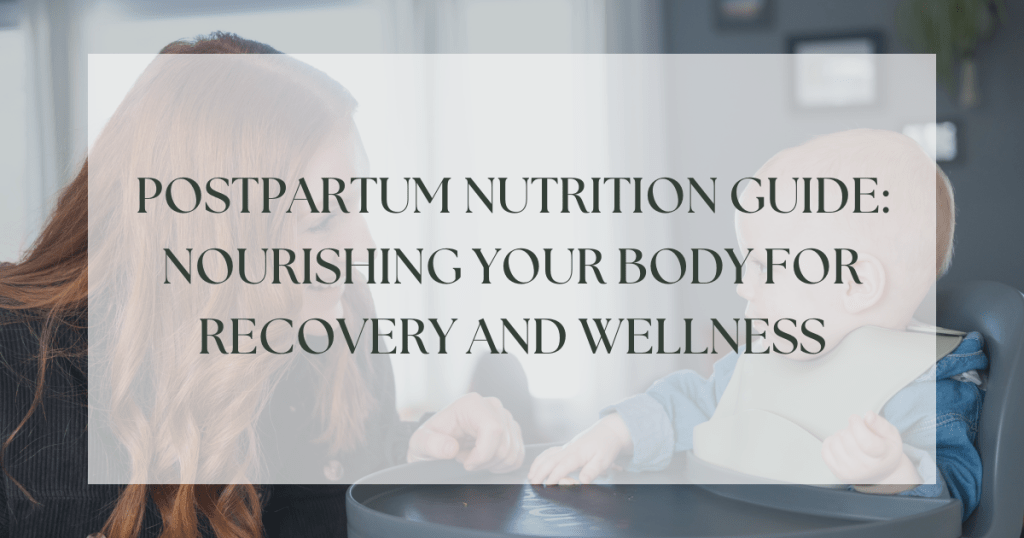Welcoming a new baby into the world is a beautiful and transformative experience. As a new parent, it’s natural to focus most of your attention on caring for your little one. However, it’s crucial not to overlook the importance of nourishing your own body during the postpartum period. Prioritizing self-care and maintaining a balanced diet rich in essential nutrients can greatly support your recovery, mood, breastfeeding outcomes, wound healing, energy levels, metabolism, and weight goals. In this blog post, we’ll explore the significance of postpartum nutrition and why it’s essential to prioritize your own well-being for both yourself and your baby.
The Importance of Postpartum Nutrition
The postpartum period is a time of significant physical and emotional changes. Your body requires adequate nutrition to recover from childbirth, support hormonal balance, and provide the energy needed for caring for your baby. Proper nourishment can help alleviate postpartum mood fluctuations, promote optimal breastfeeding outcomes, support wound healing (such as C-section incisions or perineal tears), boost energy levels, and aid in achieving healthy weight goals.
Nutrient Deficiencies and Postpartum Depression: Nutrient deficiencies postpartum can increase the risk of postpartum depression. Ensuring adequate intake of vital nutrients, such as omega-3 fatty acids, B vitamins, and minerals like magnesium and zinc, can support optimal mental health during this vulnerable period.
Maintaining Milk Supply and Avoiding Low-Calorie Diets: Low-calorie diets postpartum can decrease milk supply. It’s important to prioritize adequate calorie intake and nourishment to support breastfeeding. Focus on consuming a balanced diet that includes enough calories to meet your energy needs while providing essential nutrients for both you and your baby.
Supporting Wound Healing: Adequate protein, vitamins C and A, zinc, iron, and omega-3 fatty acids support optimal wound healing postpartum. Including protein-rich foods like lean meats, fish, legumes, and dairy, along with fruits, vegetables, and whole grains, can provide the necessary nutrients to aid in the healing process.
Preventing Exhaustion and Supporting Metabolism: Inadequate nutrition postpartum can contribute to exhaustion and a slower metabolism. By prioritizing a well-balanced diet that includes plenty of nutrient-rich foods, you can help support your energy levels and maintain a healthy metabolism. Include a variety of fruits, vegetables, whole grains, lean proteins, and healthy fats to provide essential vitamins, minerals, and antioxidants.
The Role of Cravings: Cravings postpartum can sometimes be associated with inadequate nutrition. Listen to your body’s cues and prioritize nutrient-rich foods to satisfy your cravings in a healthy and nourishing way. Including a variety of foods from different food groups can help ensure you’re meeting your nutritional needs.
Understanding the critical role of nutrition in the postpartum period empowers you to prioritize your own well-being. By addressing potential nutrient deficiencies through a balanced diet that includes plenty of nutrient-rich foods and seeking guidance from a registered dietitian, you can support your physical and mental well-being postpartum and beyond. Incorporate a variety of fruits, vegetables, whole grains, lean proteins, and healthy fats into your meals and snacks. Stay hydrated, rest when possible, and seek support from those around you. Remember, nourishing your postpartum body is not selfish but essential for optimal recovery, well-being, and providing the best care for your baby.


